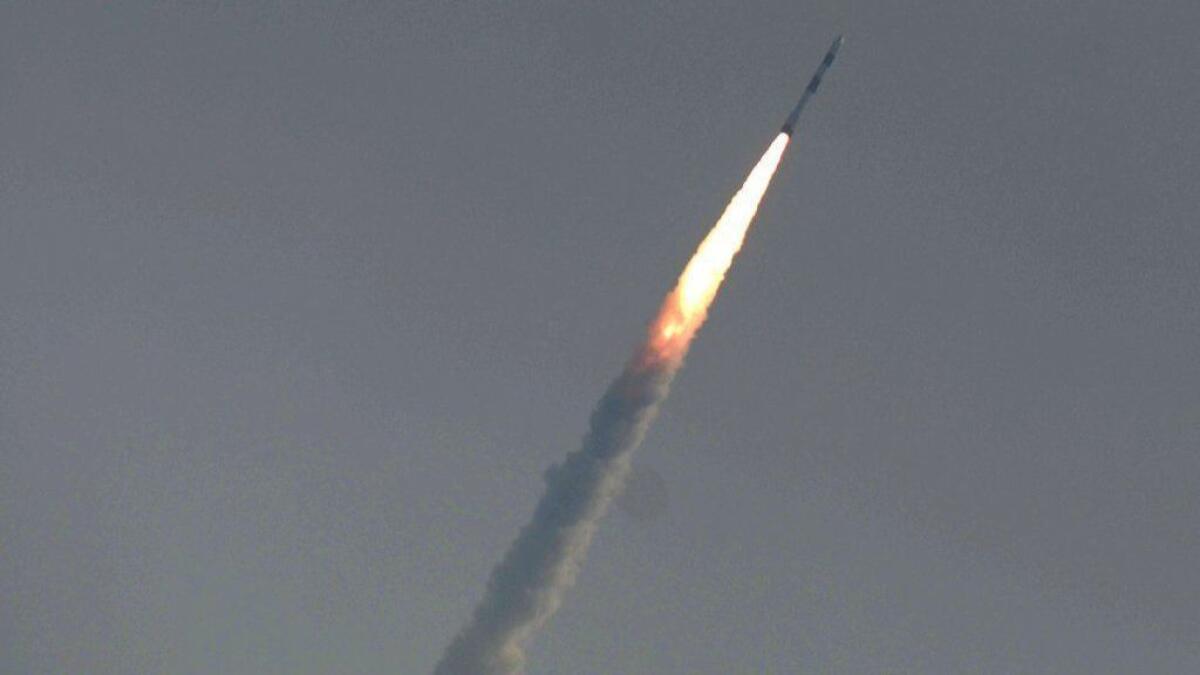‘Move fast and break things,’ satellite edition: FCC fines Swarm $900,000 for launching without permission

- Share via
Swarm Technologies Inc. learned an expensive lesson this week: If you’re going to shoot satellites into space, make sure the government signs off first.
The Menlo Park, Calif., company has agreed to pay a $900,000 fine to the Federal Communications Commission, the regulatory agency said Thursday. The FCC had denied Swarm’s request for permission to launch four tiny satellites, but the company went ahead with the launch anyway in January.
The fine sends a message to other firms in the burgeoning small-satellite industry that they need to play by the rules, analysts said. Space is a different game from the tech industry, in which companies have sometimes launched services first and asked for permission later.
“There’s a lot of new proposals, and the FCC is trying to update its rules to take account of all these new technology developments,” said Tim Farrar, president of Menlo Park satellite and telecommunications consulting firm TMF Associates. “They’re trying to send a message that everyone has to play by the rules because otherwise we’re just going to have a mess.”
Unauthorized satellites increase the risk of collisions and radio frequency interference, “threatening critical commercial and government satellite operations,” the FCC said in a statement. Swarm “admitted to the unauthorized launch and operation only after the commission discovered it,” the agency said.
In addition to the fine, Swarm also agreed to a five-year compliance plan requiring it to adopt internal programs to help ensure it follows federal rules.
Like many small-satellite manufacturers, Swarm is trying to ride the wave of cheaper manufacturing costs and smaller, more powerful electronics. Last year, 335 small satellites were launched worldwide, up from about 120 in 2016, according to data from market research firm Bryce Space and Technology.
Companies such as SpaceX and OneWeb have proposed constellations of hundreds or thousands of small satellites, and analysts have predicted that thousands of satellites could be launched in the next few years.
The frenzy has also spurred development of new launch companies such as Huntington Beach-based Rocket Lab and Long Beach’s Virgin Orbit, which offer small satellites a dedicated ride to space, rather than hitching a ride on a larger rocket with other spacecraft.
Like many other companies in the growing small-satellite industry, Swarm plans to use its technology for jobs such as Earth imaging or providing broadband internet. The satellites it launched without permission — called SpaceBees — measured about 4 inches long, 4 inches wide and 4 inches tall.
In January, Swarm attached four SpaceBees to a rocket owned by the Indian government, which launched from an island along the Indian coast. The move drew objections from the FCC, which regulates all satellite launches by U.S. companies. The agency had denied the company’s application the previous month, saying Swarm’s satellites were too small to be tracked by the U.S. Space Surveillance Network, which is supposed to catalog all man-made objects that orbit the Earth.
Small satellites can make themselves appear larger on radar through smart design techniques, such as the incorporation of angled metal surfaces, Farrar said.
Industry analysts have said this may have been the first time a U.S. company operated a satellite without FCC approval.
Additionally, the FCC said that, during its investigation, it learned that Swarm had performed unauthorized communications tests involving weather balloons. It said Swarm also admitted to performing unauthorized tests with unlaunched satellites.
The company has not launched or operated any satellites without permission since the FCC investigation began, the commission said.
Swarm Chief Executive Sara Spangelo, a former Google employee, did not respond to a request for comment Friday.
In a written statement, FCC Commissioner Michael O’Rielly said the size of the fine “is probably not significant enough to deter future behavior, but the negative press coverage is likely to prevent this company and others from attempting to do this again.”
During a SpaceX launch this month that sent 64 tiny satellites to space, mission broker Spaceflight chose not to deploy one customer because it could not demonstrate adequate licensing, the company said. To prevent the satellite from being released into space, Spaceflight said, it sealed the spacecraft inside its dispenser and it will eventually burn up in the Earth’s atmosphere.
“It’s in everybody’s self-interest to not just self-police but also to have a regulatory body there to make sure that orbital debris is not generated,” said Phil Smith, senior space analyst at Bryce Space and Technology. “Everybody will be impacted by that.”
More to Read
Inside the business of entertainment
The Wide Shot brings you news, analysis and insights on everything from streaming wars to production — and what it all means for the future.
You may occasionally receive promotional content from the Los Angeles Times.












